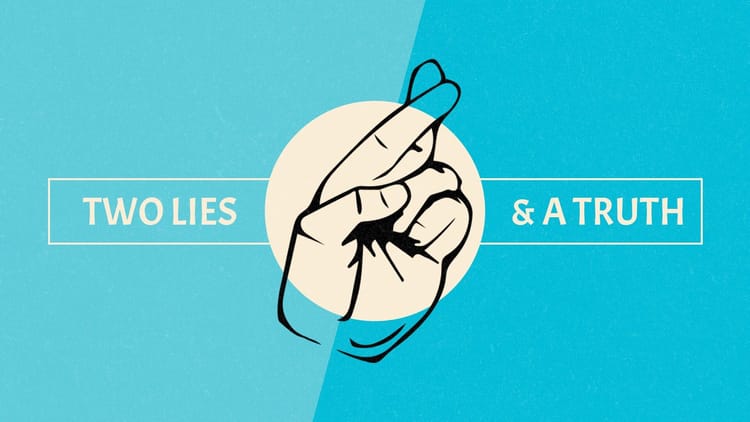Easter 2004 (1 Corinthians 15:3-9)

Bunnies…eggs…religion…the salvation of humanity…what comes to mind when you think about Easter? From the abstract to the absolute, hear the responses of people all familiar, but not necessarily intimate, with the term Easter.
When it comes to Easter, there really are a few questions that need to be asked. One of them has already been answered. What does Easter celebrate? It celebrates the belief that Jesus of Nazareth came back from the dead.
But that leads to a second question: is it true? It’s not our everyday experience to see people rising again from the dead. This sounds like one of those nursery rhymes we tell our children, like Jack and Jill went up the hill. It sounds preposterous. Thomas Jefferson took his Bible and cut all the miraculous stories out of it, and I suppose we’ve all been tempted to do the same.
You’re not alone if you have these questions. From the very beginning, people have questioned whether it could be true that Jesus rose from the dead. Even some of the most committed followers of Jesus have occasionally found themselves asking, “Am I following a sham? Is this really true?”
Here’s the thing: if it is true, then it means that we have to take Jesus pretty seriously. Any person who says they’re going to rise again from the dead, and then do so – I’m inclined to believe pretty much anything that they say. If Jesus did rise from the dead, then it validates his teaching and his identity. It’s a pretty big question.
There are lots of arguments I could give you for the resurrection of Jesus Christ, but I won’t. You can find a lot of them in a book like The Case for Easter, and you can take the time to evaluate them and wrestle with them. What I want to do is to look at the testimony of a former skeptic who was writing to a group of skeptics about the resurrection of Jesus. They believed in the immortality of the soul, but they couldn’t believe in a physical resurrection. Here’s what this former skeptic said:
I passed on to you what was most important and what had also been passed on to me-that Christ died for our sins, just as the Scriptures said. He was buried, and he was raised from the dead on the third day, as the Scriptures said. He was seen by Peter and then by the twelve apostles. After that, he was seen by more than five hundred of his followers at one time, most of whom are still alive, though some have died by now. Then he was seen by James and later by all the apostles. Last of all, I saw him, too, long after the others, as though I had been born at the wrong time. For I am the least of all the apostles, and I am not worthy to be called an apostle after the way I persecuted the church of God. (1 Corinthians 15:3-9)
Don’t forget that these are the words of someone who was formerly a skeptic about the resurrection. He spent his life traveling and looking for people who believed in Jesus so that he could arrest them. He was present at the killing of the first person who was killed for his faith in Jesus Christ. When he began to follow Jesus, he was so feared by Christians that he not only feared for his life from those who opposed Christianity, he also had to worry about whether he would be accepted by the Christians or not. They might of thought he was going undercover to infiltrate and arrest him.
One day, something happened that changed all that. He saw Jesus for himself, and became an eyewitness of the resurrection. He joined Peter, the apostles, and over five hundred people who saw for themselves that Jesus had risen from the dead.
People didn’t expect it. If you saw The Passion, you’d understand that nobody would believe that you could be beaten, and then crucified, and then be walking around a few days later like none of that had happened. None of his followers believed that Jesus was going to come back from the dead. Only one thing changed that: they saw him. They believed, and it changed the rest of their lives. Their eyewitness testimony, and the way it changed their lives, is some of the most compelling proof that the resurrection did happen. When these words were written, many of the witnesses were still around, and you could check out their story. Paul, the former skeptic himself, said, “And if Christ has not been raised, then your faith is useless” (1 Corinthians 15:17). One person summarizes it this way:
The resurrection is the keystone of the arch on which our faith is supported. If Christ has not risen, we must impeach all those witnesses for lying. If Christ has not risen, we have no proof that the crucifixion of Jesus differed from that of the two thieves who suffered with him. If Christ has not risen, it is impossible to believe that his atoning death was accepted. (D.L Moody)
Only one fact could account for the start of the church, the writing of the New Testament, and the fact that Christianity spread all throughout the ancient world at that time. It wasn’t built on the moral teaching of Jesus. It was built on the belief that Jesus rose from the dead, and that belief came from having seen him firsthand.
Is it true? I still ask myself that at times. Every once in a while, it seems so unreal, too out of my experience. But I also remember that it seemed unreal and unbelievable right from the start, and that a whole bunch of eyewitnesses believed because they saw it for themselves. I also remember the words of Jesus himself, who said, “”You believe because you have seen me. Blessed are those who haven’t seen me and believe anyway” (John 20:26).
There’s one more question I’d like to ask before we wrap up. So what? If Jesus did rise from the dead, what does that mean for us? What is the relevance of Easter to today?
To answer that question, I need to explain one verse to you, and then I’m done. 1 Corinthians 15:20 says, “But the fact is that Christ has been raised from the dead. He has become the first of a great harvest [the firstfruits] of those who will be raised to life again.”
The idea of firstfruits is drawn from the ancient Jewish religion. Every year at harvest, the first sheaf of the harvest was offered to God. That took place prior to the rest of the harvest, and it was also an assurance that the rest of the harvest was coming as well. Paul uses this imagery to refer to Jesus’ resurrection. It comes before our resurrection, and it is given to God as an assurance that he’s just the first of many who will be raised from the dead. Jesus went first, but our turn is coming.
Here’s the relevance of Easter for us today. What happened to Jesus can one day happen to us. Death is not the end. There’s more coming. Our bodies will be raised from the dead as well. They’ll be different from now, Paul explains, but they will raised just as Jesus was raised from the dead.
“Death is the ultimate weapon of the tyrant; resurrection…overthrows it” (N.T. Wright). We don’t have to fear death any longer, because we know now that there is more.
The resurrection is about a lot of things. It’s the vindication of everything Jesus said and taught. It’s our assurance that the Kingdom of God is well because the King is alive. It’s the cornerstone of the Christian faith. It’s also our assurance that what happened to Jesus one day can happen to us.
The only thing left to do is to respond to the resurrection the same way that the former skeptic who wrote these words did: by following and serving the Risen One from that point on.





